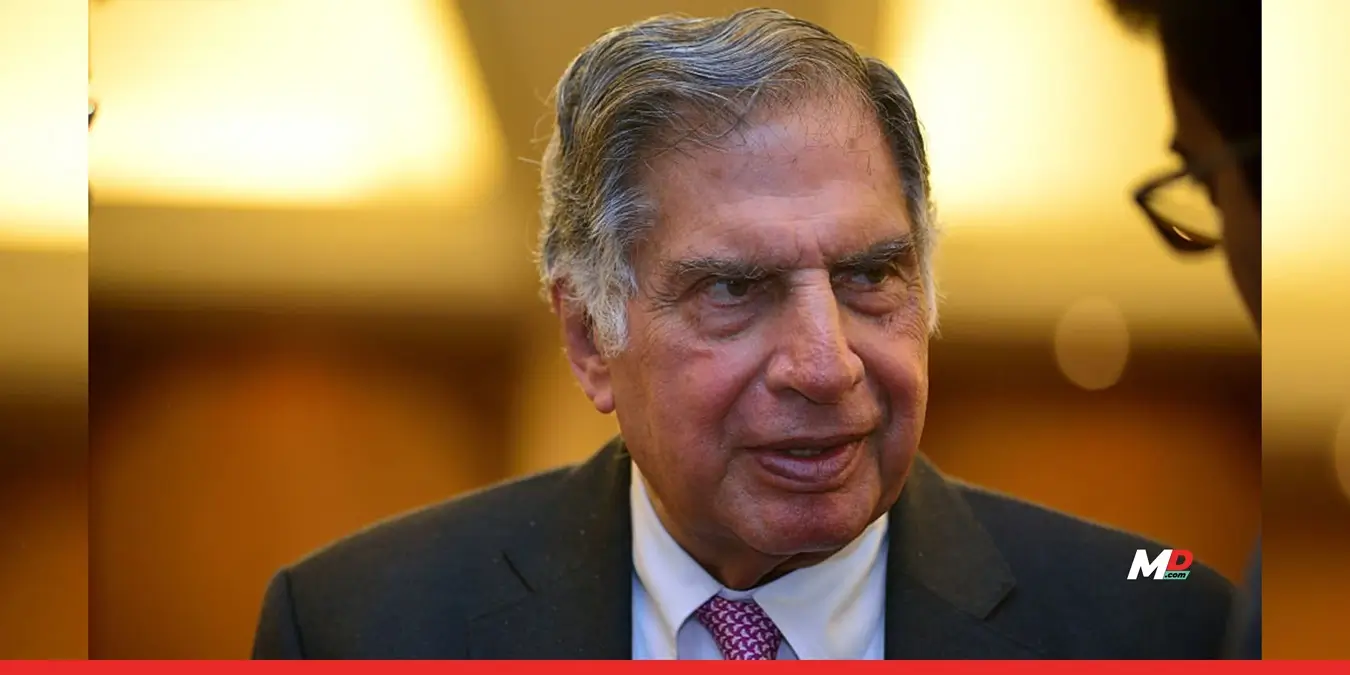Published
1 year agoon

The Indian business landscape has lost one of its most revered and influential figures with the passing of Ratan Tata, the former chairman of the sprawling Tata conglomerate. At the age of 86, this titan of industry bid farewell, leaving behind an unparalleled legacy that has shaped not just the Tata Group, but the very fabric of the nation. His sagacity, kindness, and compassion ensures he leaves behind a legacy that is massive, and shoes that are enviously large to fill.
Ratan Tata’s journey was one of unwavering dedication, visionary leadership, and a deep commitment to the betterment of society. From his humble beginnings in the Tata family’s baroque manor in Mumbai to the pinnacles of Indian business, his life was a testament to the power of perseverance, innovation, and a steadfast moral compass.
The Early Years: Shaping a Future Titan
Born on December 28, 1937, to Naval and Soonoo Tata, young Ratan was raised by his grandmother, Navajbai R. Tata, in the iconic Tata Palace. His formative years were marked by a rigorous education, first at the prestigious Campion School and then at the renowned Cathedral and John Connon School in Mumbai.
After completing his architectural studies at Cornell University in the United States, Ratan Tata embarked on a brief stint in Los Angeles before returning to India in 1962 to join the family business. It was the beginning of a remarkable journey that would see him rise through the ranks and eventually take the helm of the Tata Group.
Ascending the Tata Throne
Ratan Tata’s ascent to the top of the Tata Group was a gradual but steady one. In 1971, he was appointed as the director-in-charge of the National Radio and Electronics Company Limited, a role that would serve as a stepping stone to greater responsibilities. A decade later, he was entrusted with the chairmanship of Tata Industries, a position he held until 1991 when he assumed the mantle of chairman of Tata Sons, the holding company of the Tata Group.
Under Ratan Tata’s leadership, the conglomerate underwent a remarkable transformation. From a mere $5.7 billion in revenues in 1991, the Tata Group’s fortunes soared, reaching a staggering nearly $100 billion by the time he stepped down in 2012. This remarkable growth was fuelled by Tata’s strategic vision, which saw the group piggyback on the liberalization and globalization waves that swept through India.
Acquisitions and Diversification: Tata’s Global Ambitions
One of the hallmarks of Ratan Tata’s tenure was the group’s aggressive pursuit of high-profile acquisitions, both at home and abroad. Tata’s bold moves saw the group acquire iconic brands such as Tetley, Corus, Jaguar Land Rover, Brunner Mond, General Chemical Industrial Products, and Daewoo, among others.
These strategic acquisitions not only expanded the Tata Group’s global footprint but also infused the conglomerate with a newfound sense of dynamism and international competitiveness. Tata’s vision was to transform the Tata Group into a truly global powerhouse, capable of competing with the world’s leading corporations.
Philanthropy and Social Impact
Ratan Tata’s impact on the Indian business landscape extended far beyond the boundaries of the Tata Group. He was a staunch believer in the power of philanthropy and social responsibility, and his contributions in this realm were nothing short of remarkable.
Through the Tata Trusts, Ratan Tata channelled his wealth and influence towards initiatives that aimed to uplift the lives of millions of Indians. From supporting healthcare and education to driving sustainable development and environmental conservation, the Tata Trusts became a beacon of hope and progress for the nation.
Tata’s commitment to social impact was recognized by the Government of India, which awarded him the Padma Vibhushan, the country’s second-highest civilian honour, in 2008.
But beyond the larger-than-life acts, it was the smaller, more humble acts that touched the heart, such as his instructions to never turn away a stray dog from a Taj hotel. It is these acts of kindness that he will be remembered for as much as his business legacy.
Embracing the Startup Ecosystem
In addition to his transformative work within the Tata Group, Ratan Tata also left an indelible mark on India’s burgeoning startup ecosystem. Long before the term “entrepreneurship” became a buzzword, Tata recognized the immense potential of the country’s new-age innovators and made strategic investments in a diverse range of startups.
From household names like Paytm, Snapdeal, and Ola to lesser-known gems like CureFit, Lenskart, and Moglix, Tata’s investment portfolio was a testament to his foresight and faith in the power of entrepreneurship. He often described these investments as a “learning experience,” emphasizing his belief in the vision and commitment of the founders he backed.
Succession and the Future of the Tata Empire
With the passing of Ratan Tata, the question of succession has naturally arisen. As a bachelor with no children, Tata’s vast business empire has sparked speculation about who will inherit his legacy. One name that has emerged as a potential heir is Noel Tata, Ratan’s half-brother, who has long been considered a likely successor.
Noel Tata’s daughter, Leah Tata, has already made her mark within the Tata Group, holding a key role at the Indian Hotels Company Limited. As the Tata Group moves forward, the next generation of leaders will be tasked with upholding Ratan Tata’s immense legacy and navigating the conglomerate through the challenges of the 21st century.
Remembering a True Titan
The loss of Ratan Tata has left a profound void in the heart of India Inc. and the nation as a whole. He was a visionary, a philanthropist, and a true titan of industry whose impact on the Indian business landscape will be felt for generations to come.
As the country mourns the passing of this legendary figure, the Tata Group and the broader Indian business community will undoubtedly strive to honour his memory by continuing his relentless pursuit of excellence, innovation, and social impact. Ratan Tata’s life and legacy will forever serve as a shining example of what can be achieved through unwavering dedication, ethical leadership, and a steadfast commitment to the greater good. He will be missed greatly.


Ola Electric’s ‘Structural Reset’: Revenue Plunges as Aggarwal Pivots to Profitability


TechnoSport Partners Ravichandran Ashwin to Spotlight Cricket’s ‘Game Changers of the Decade’ as T20 World Cup Fever Grips Fans


Healthy Master Appoints Cricketer Harshit Rana as Brand Ambassador, Championing Mindful Snacking and Resilience


Signature Global Enters Large-Scale Commercial Development; RMZ to Acquire 50% Stake in Subsidiary for INR 1,283 Crore Gurugram Project


Marks & Spencer: A Legacy Brand in a Modern World


Turbulence ahead? Airlines warn DGCA Cabin Crew norms could disrupt schedule

